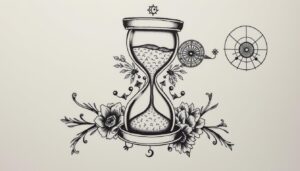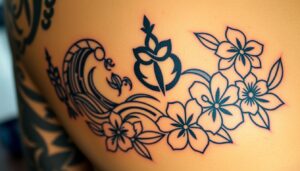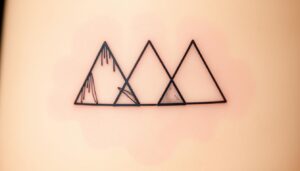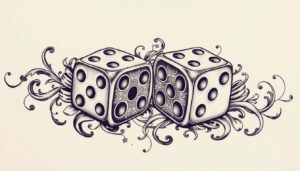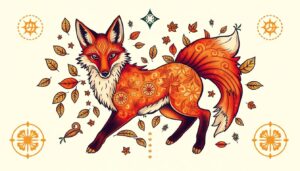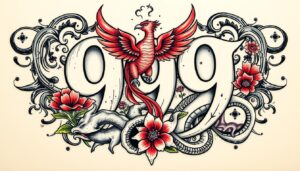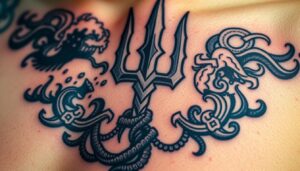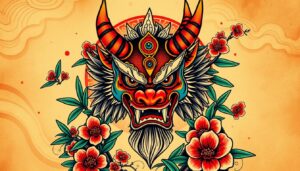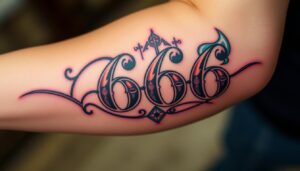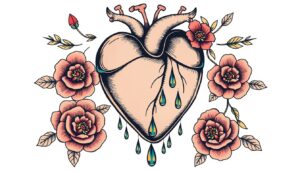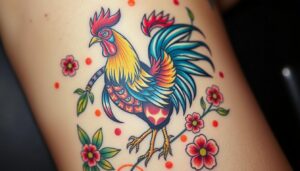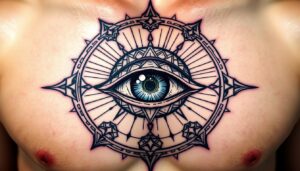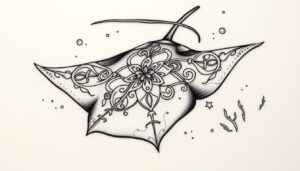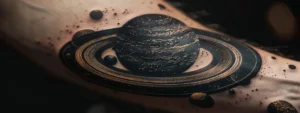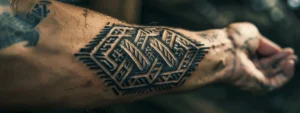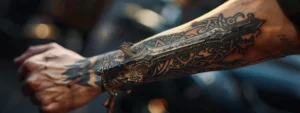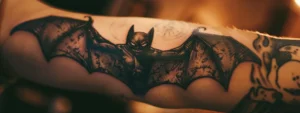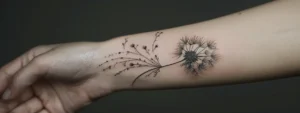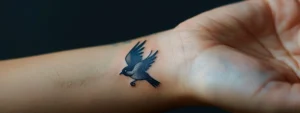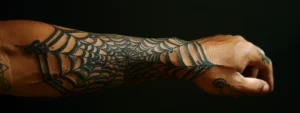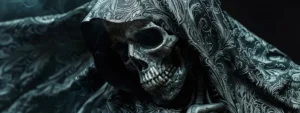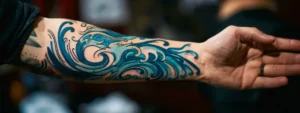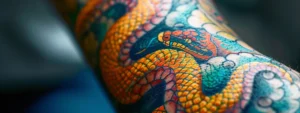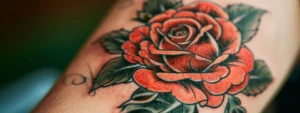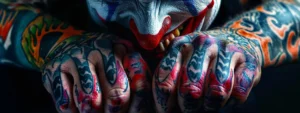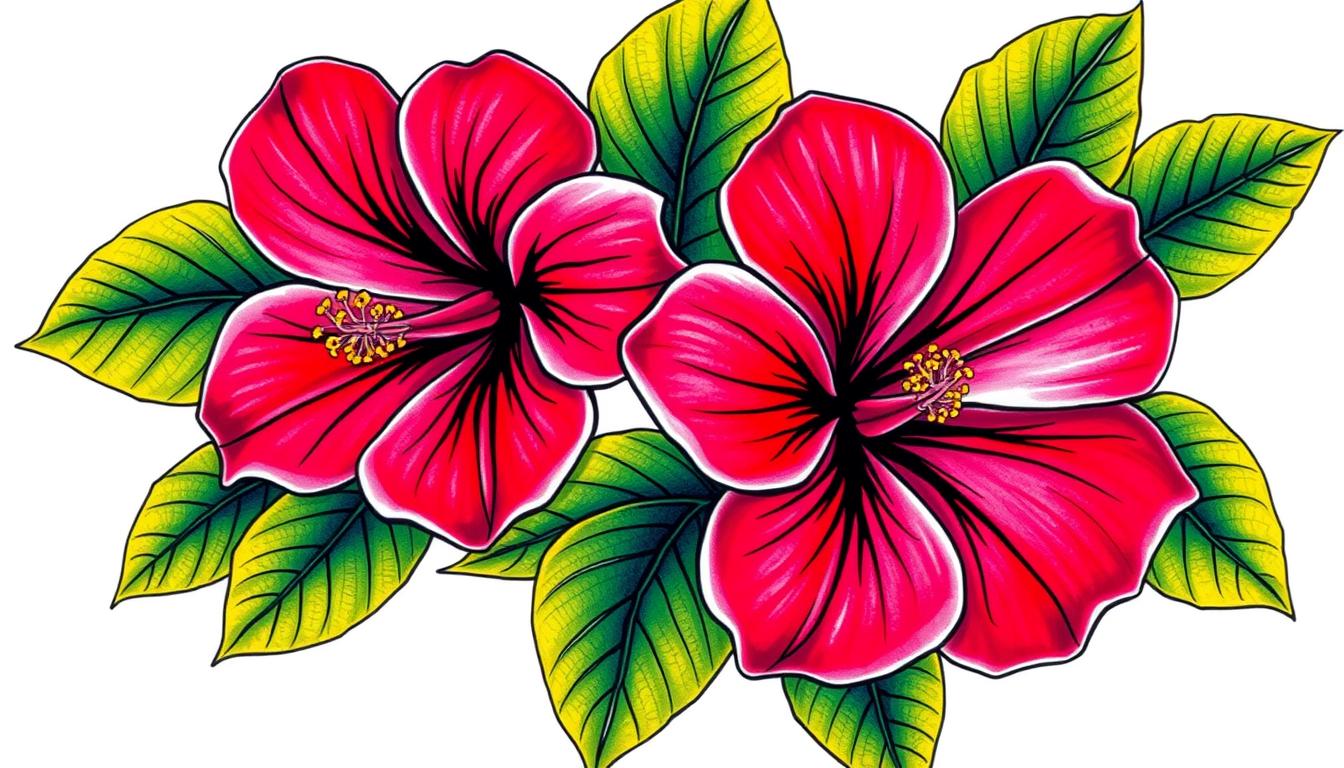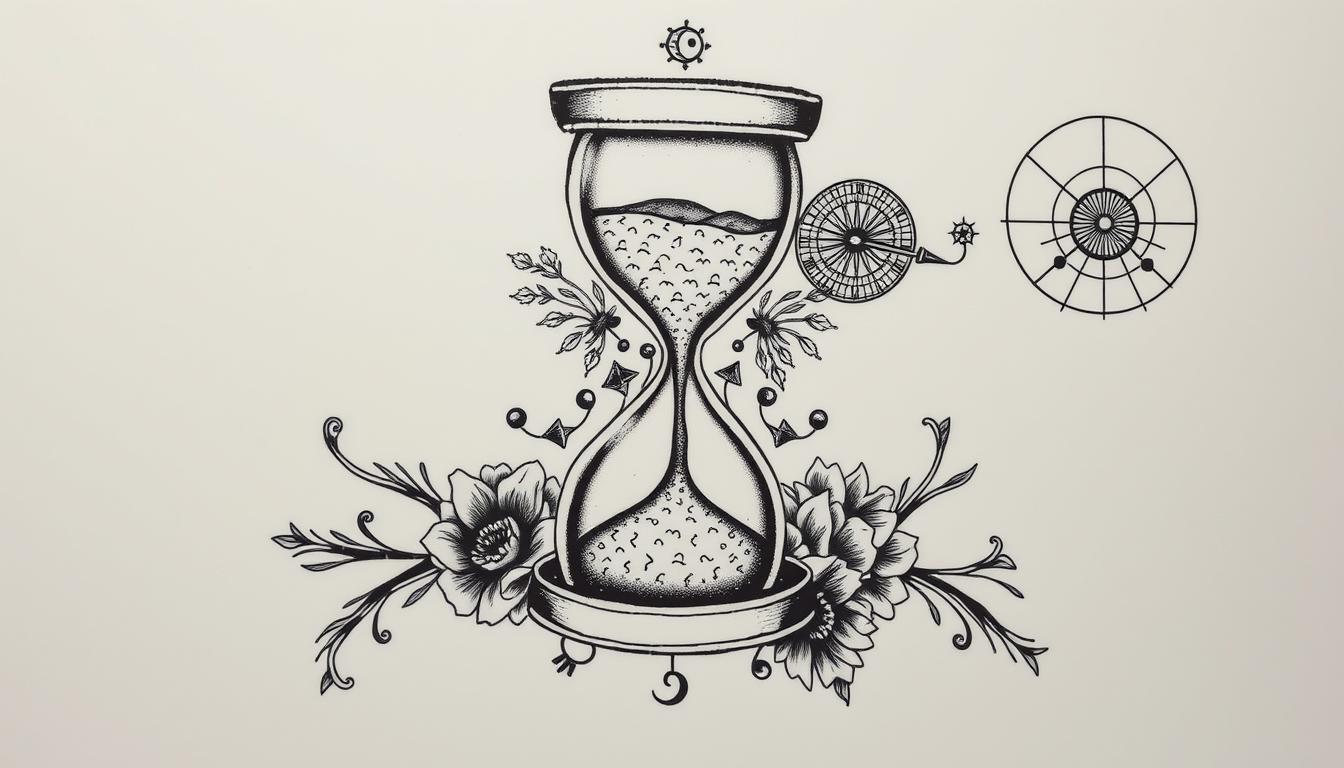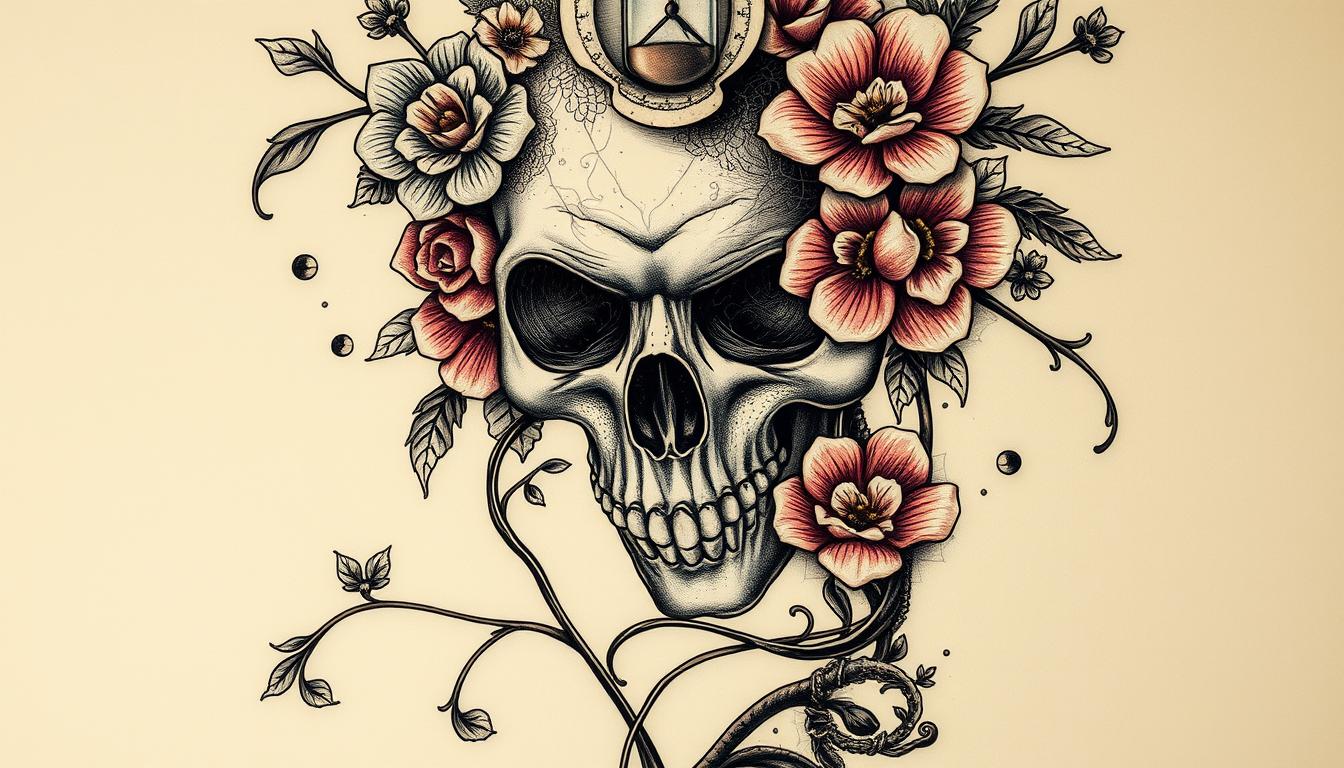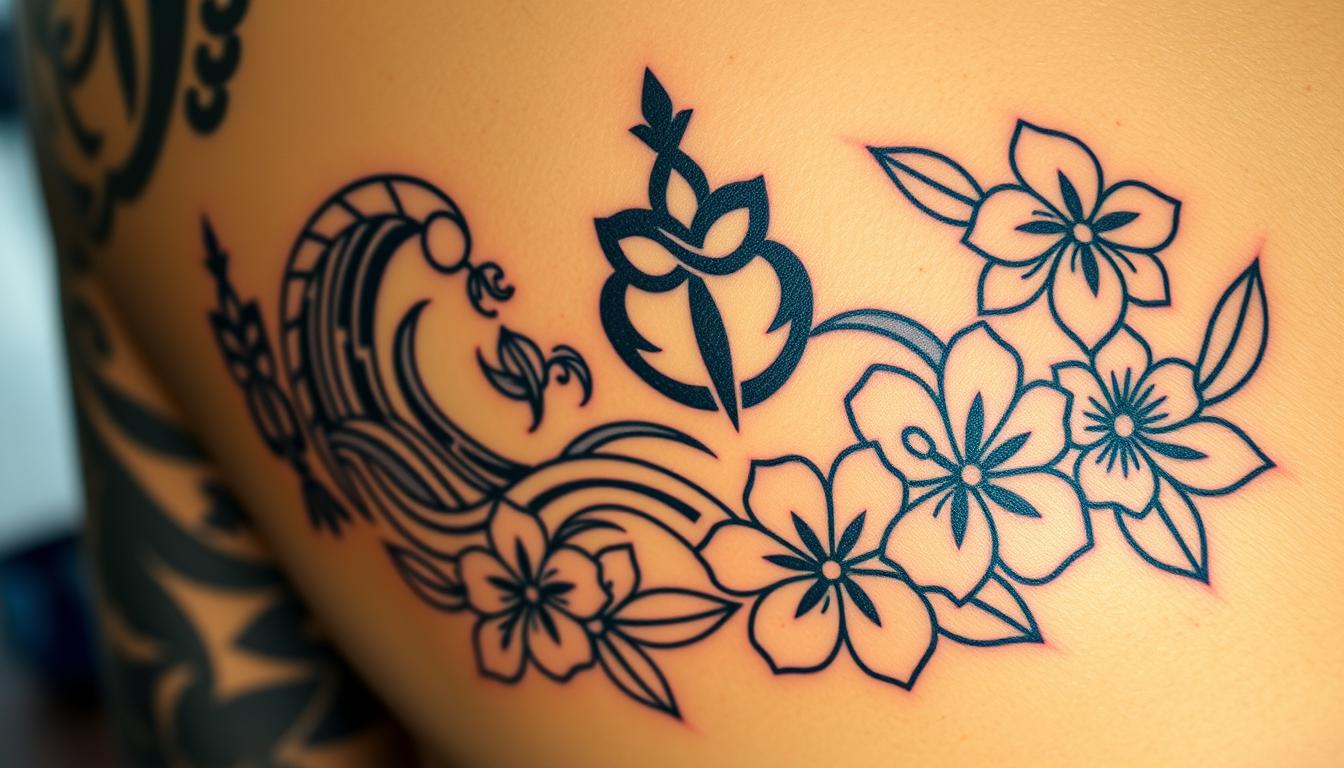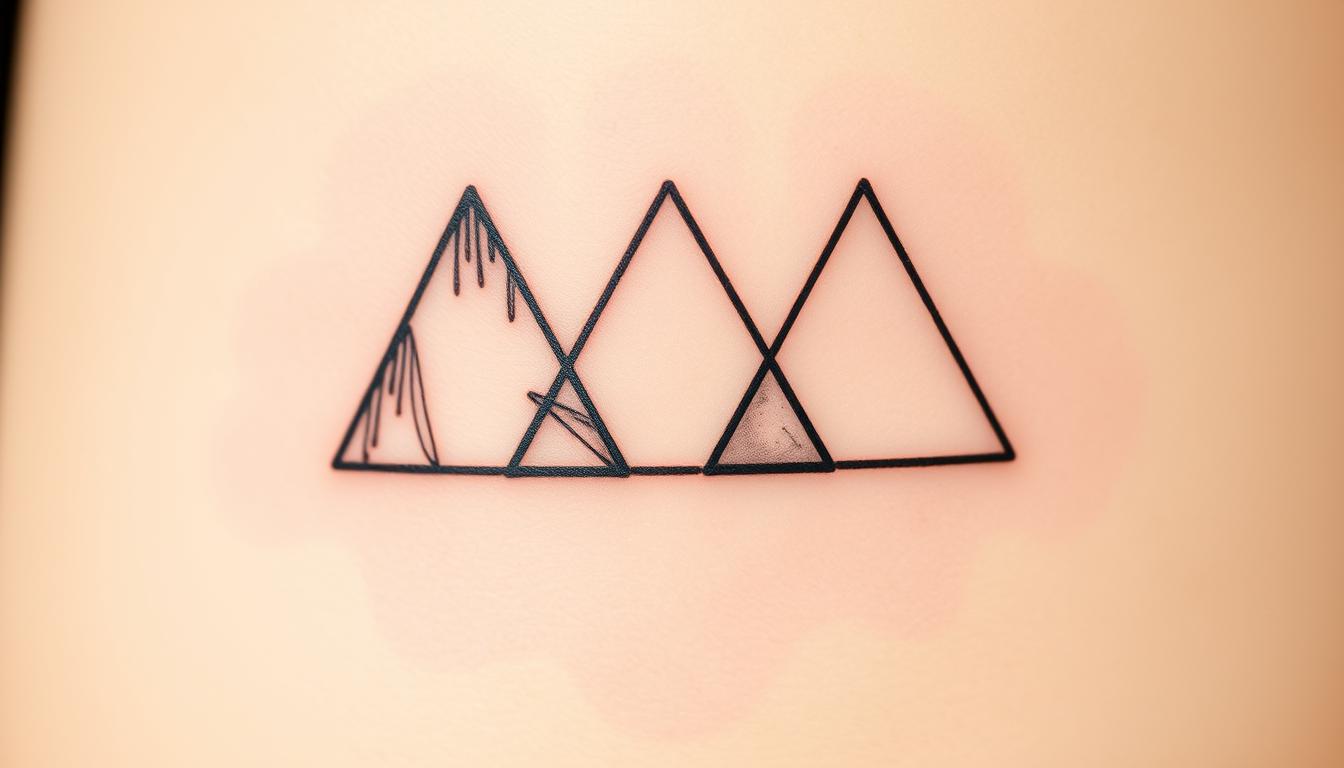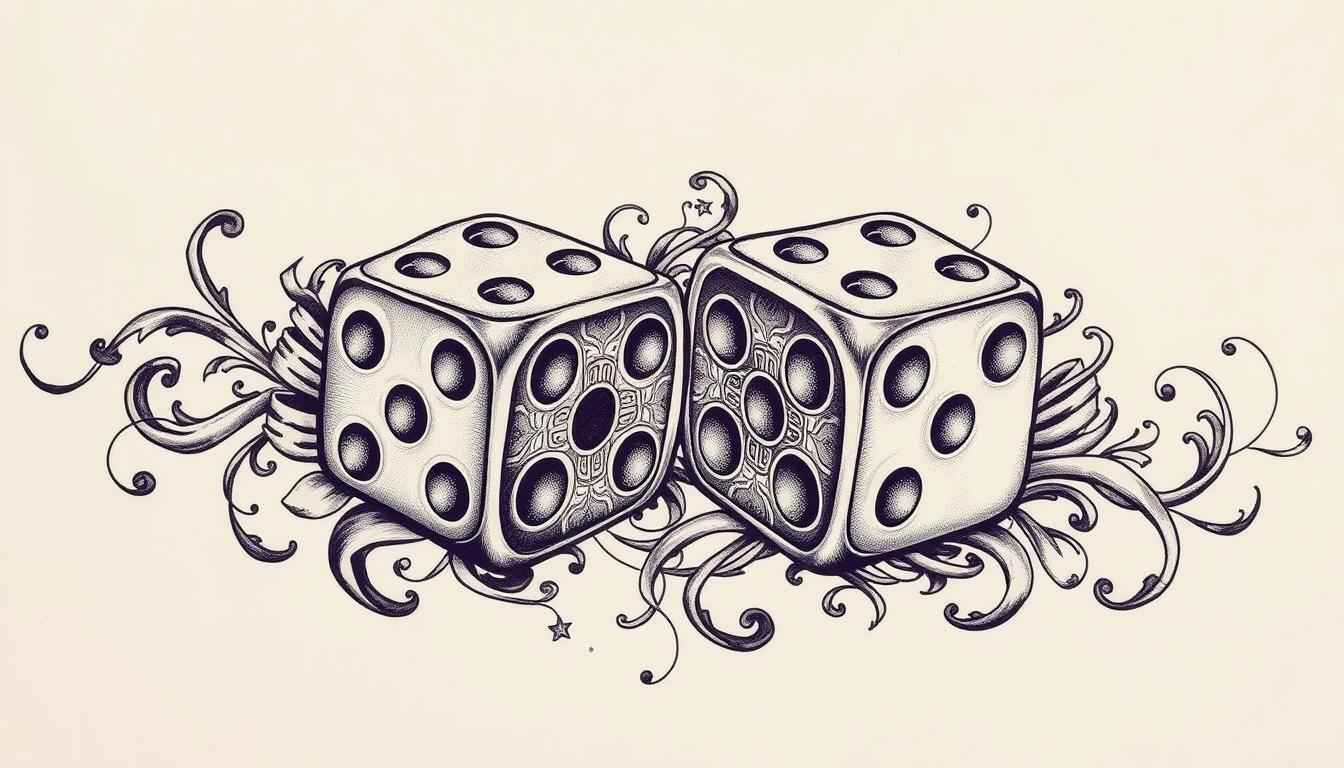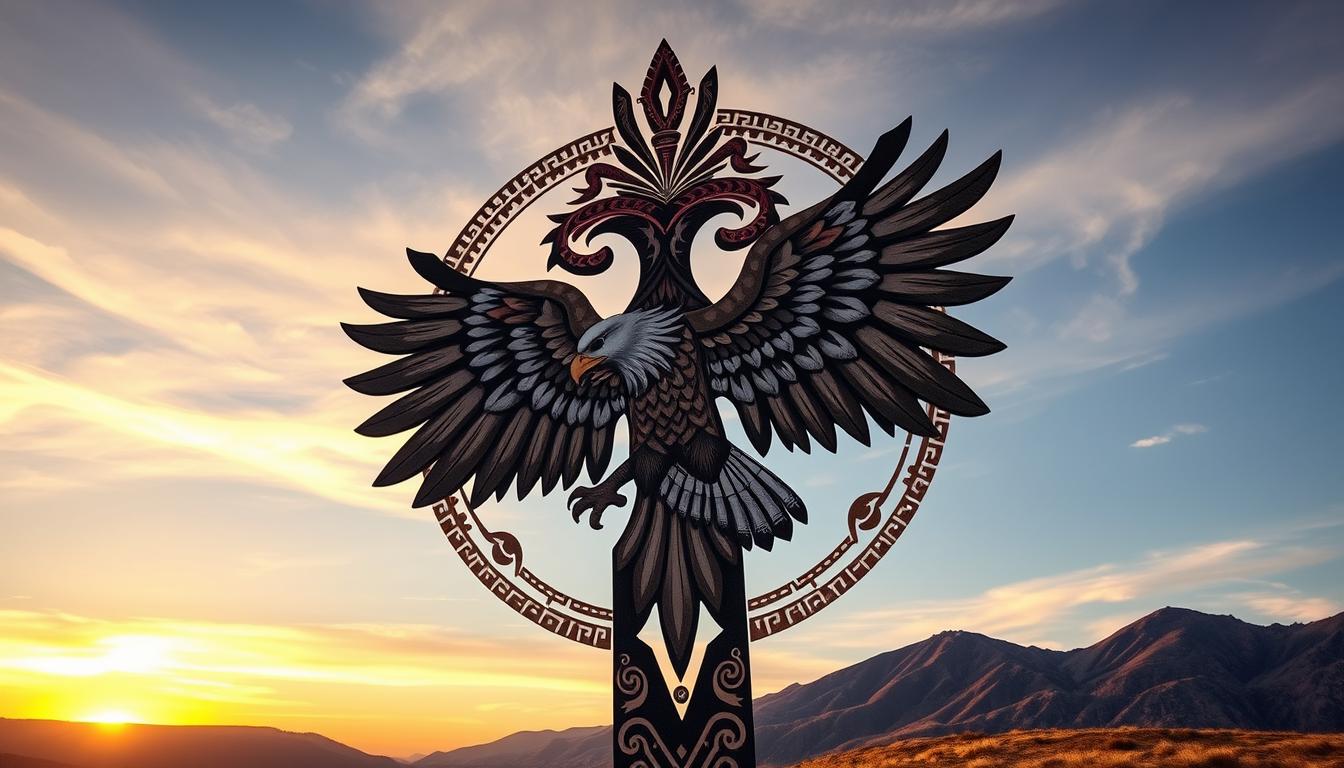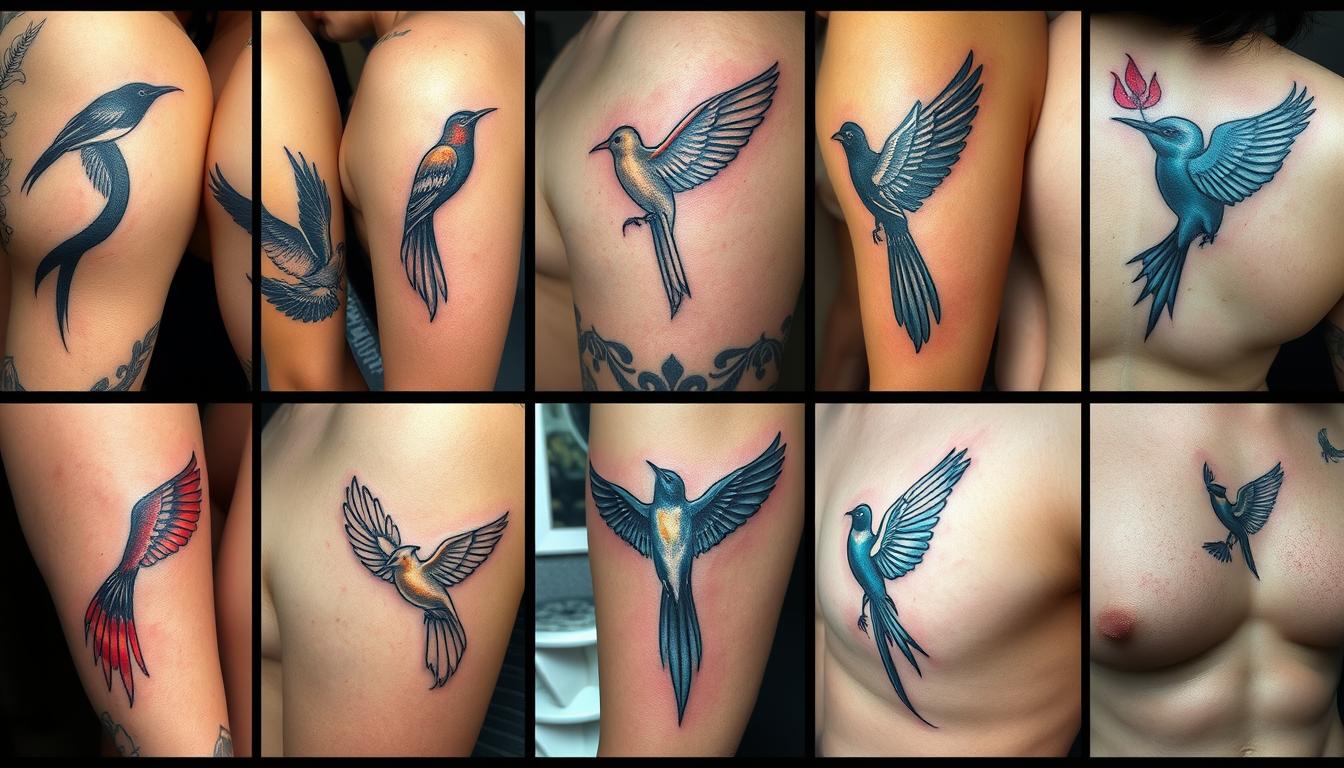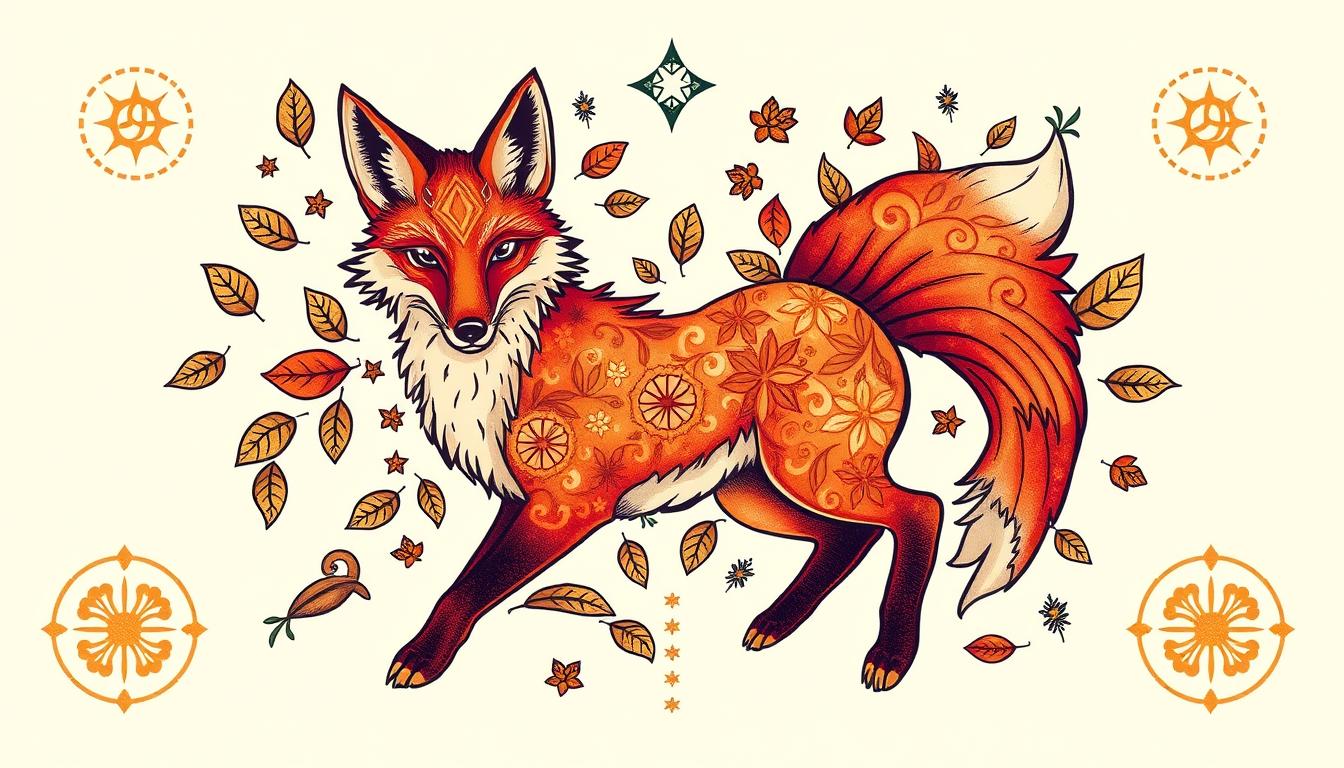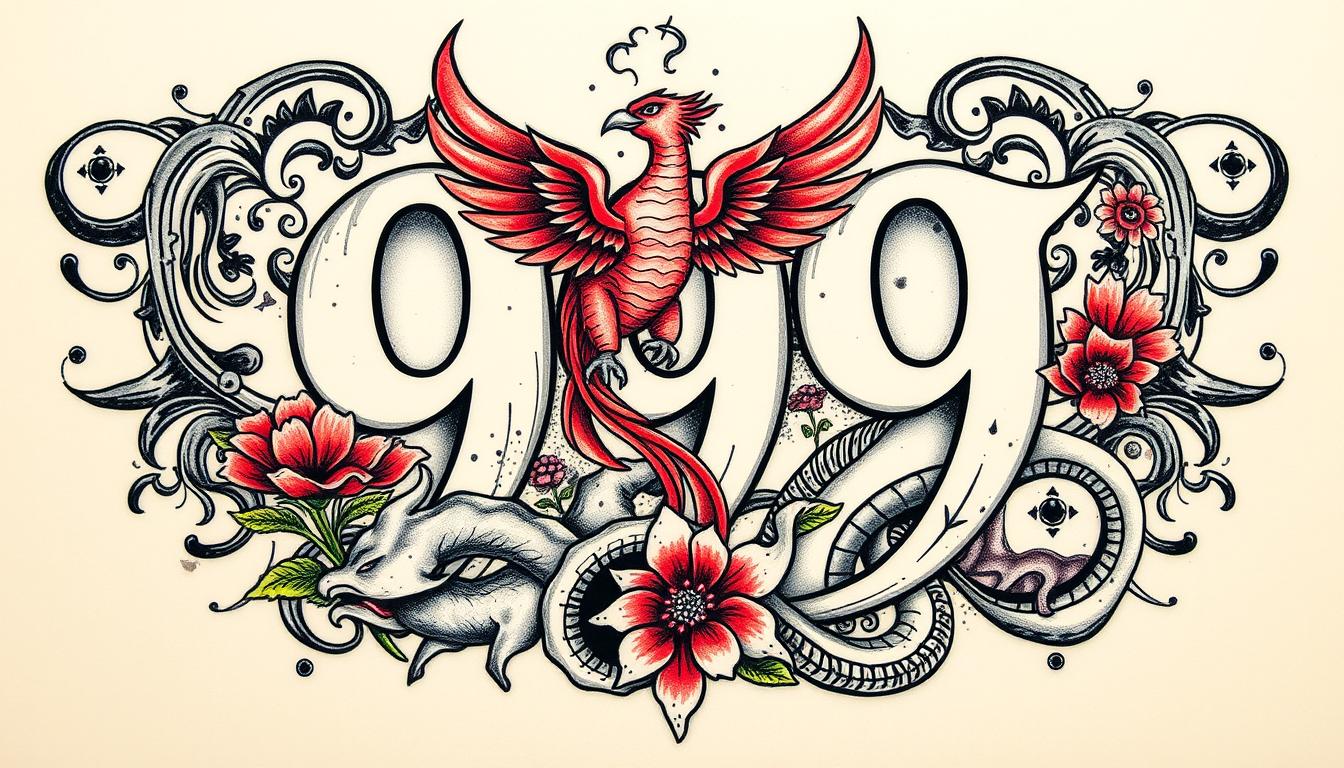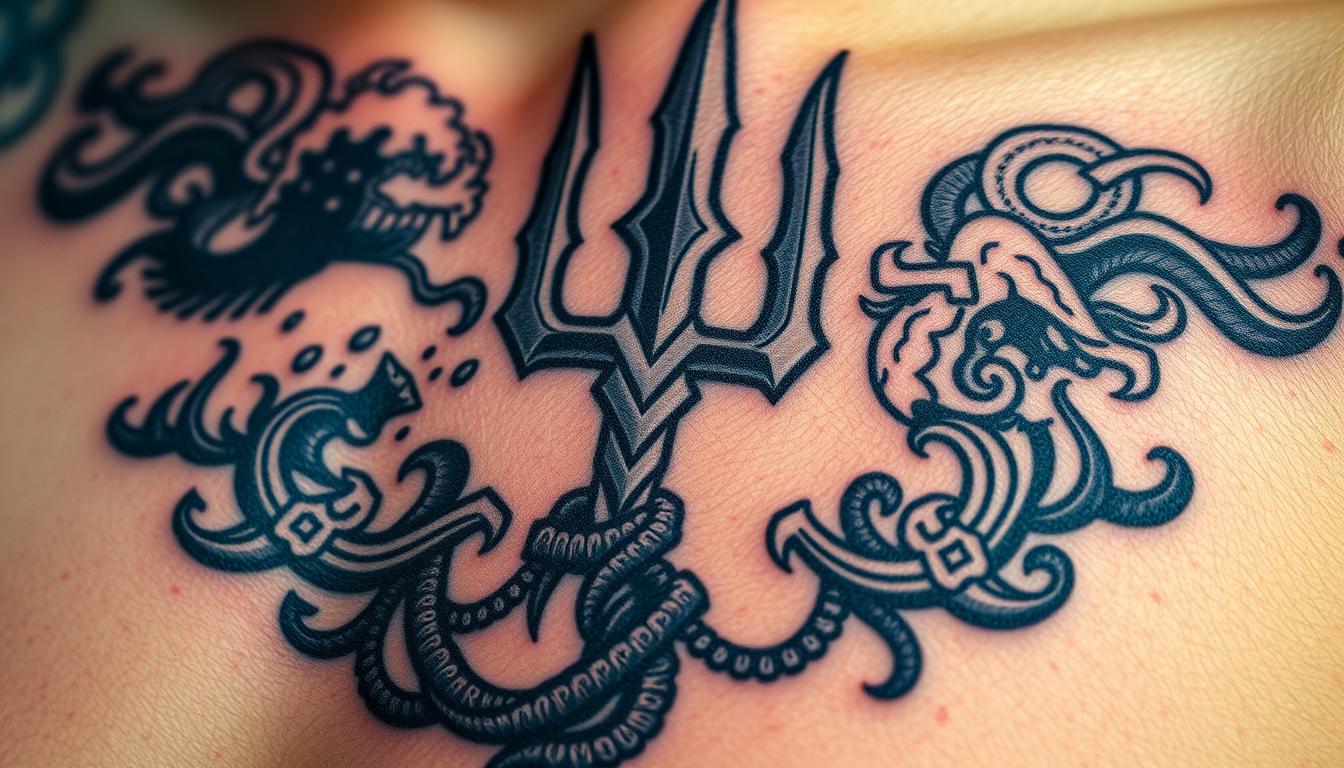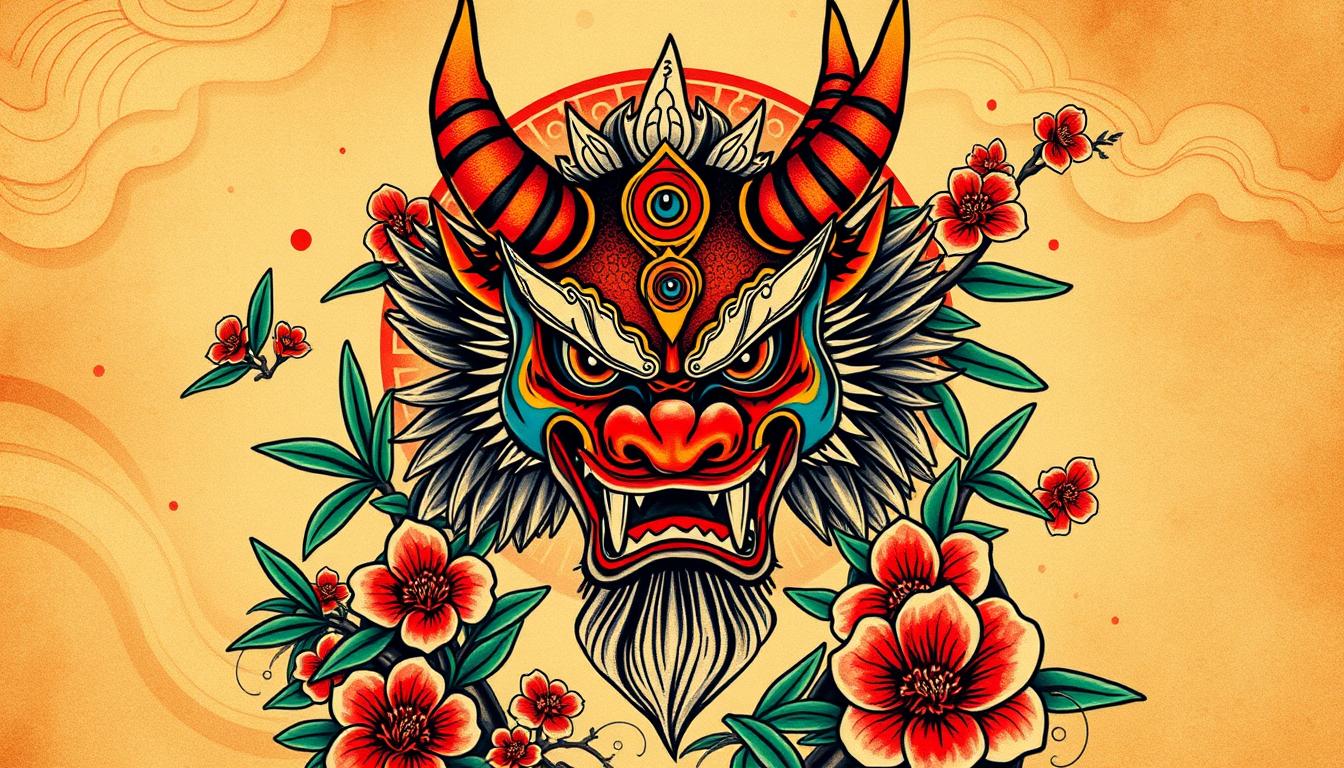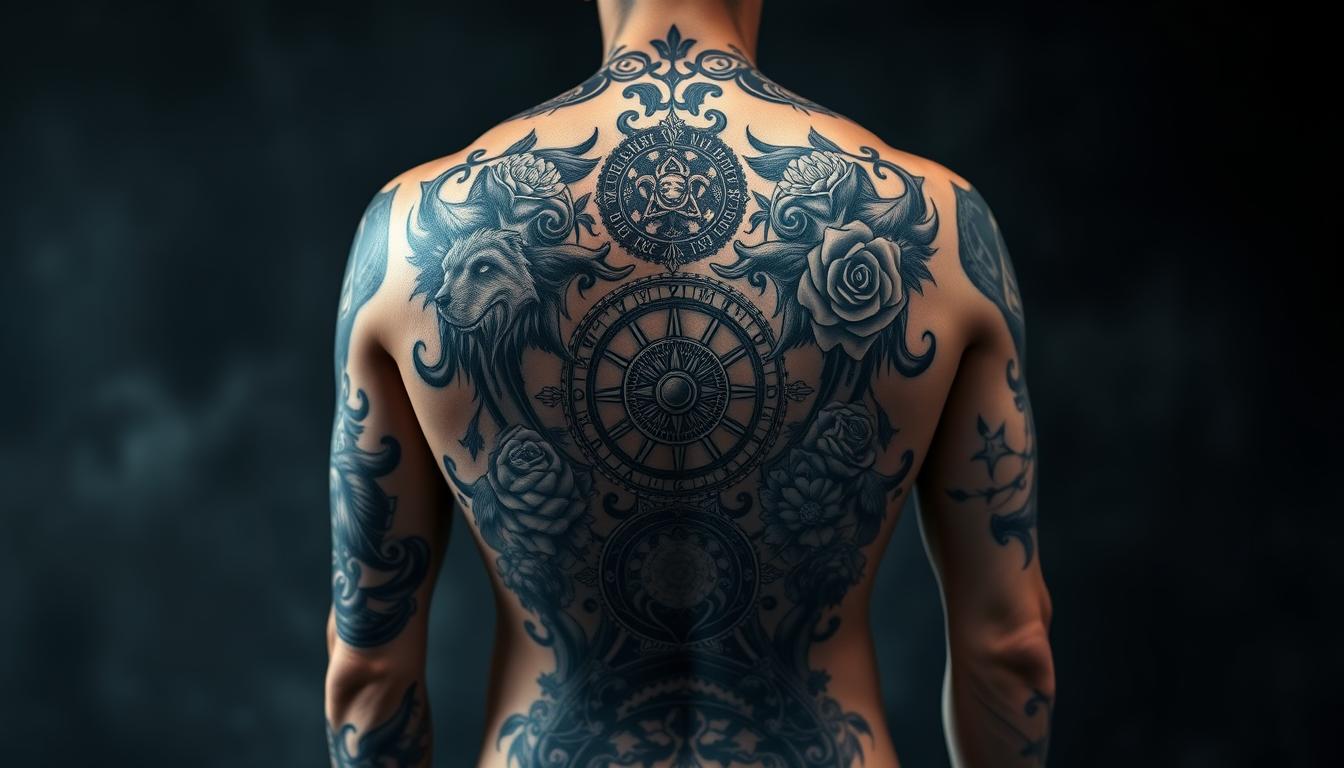The number 777 holds a powerful allure in tattoo culture, but what does it truly signify? This article delves into the origins, spiritual meanings, and cultural impact of 777 tattoos. We’ll explore how this numerical sequence is interpreted across religions, its association with luck, and its connection to meditation practices. Whether you’re considering getting a 777 tattoo or simply curious about its significance, you’ll gain insights into its symbolism and learn how to design a meaningful piece that resonates with your personal beliefs.
Key Takeaways
- The 777 tattoo symbolizes luck, spirituality, and personal transformation across various cultures and religions
- Popular styles include minimalist, calligraphic, and geometric designs, often incorporating personal elements for added meaning
- Placement considerations include visibility, pain tolerance, and personal significance when choosing a location for the tattoo
- The 777 tattoo has influenced popular culture, appearing in music, art, and media as a symbol of fortune
- The meaning of 777 tattoos continues to evolve, reflecting changing cultural values and individual interpretations in modern society
Understanding the Origins of the 777 Tattoo
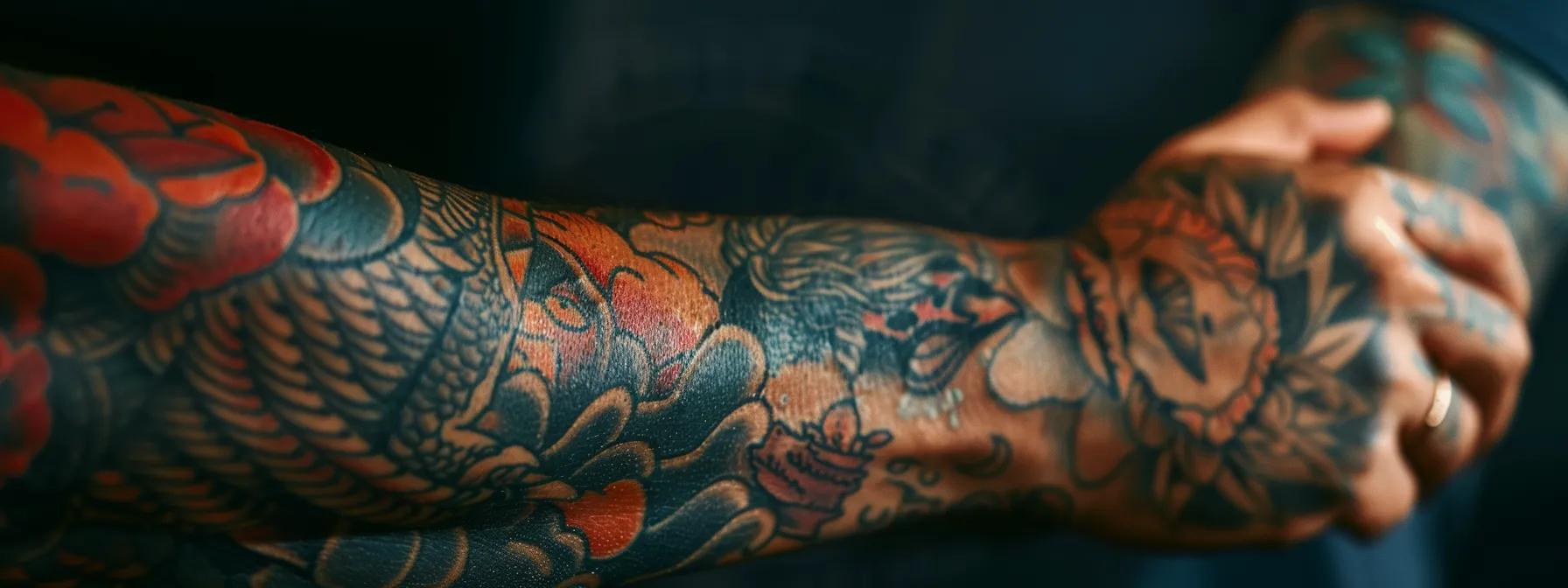
The 777 tattoo’s origins stem from the number 7’s historical significance across cultures. From Christianity to gambling, the number has influenced spirituality and intuition. This section explores how 7’s symbolism in various civilizations transitioned into a popular tattoo design, reflecting its enduring impact on the human mind and body art traditions.
The Number 7 in Historical Context
The number 7 has held a significant place in human history, influencing various aspects of culture, religion, and philosophy. Ancient civilizations recognized its unique energy, often associating it with divine completeness, spiritual awakening, and the sequence of creation. From the seven days of the week to the seven chakras in Eastern traditions, this powerful number has been woven into the fabric of human consciousness, shaping beliefs about prosperity and the soul’s journey. As tattoo art evolved, the triple repetition of 7 emerged as a potent symbol, etched onto skin to invoke luck and spiritual alignment.
Cultural Significance Across Civilizations
The significance of 777 transcends cultural boundaries, appearing in diverse civilizations throughout history. In astrology, the number 7 aligns with personal development and spiritual growth, while many religions associate it with divinity and god. Ancient cultures often linked the triple 7 to wealth and abundance, believing it held the key to unlocking prosperity. This cross-cultural reverence for 777 has contributed to its popularity as a tattoo symbol, representing a universal quest for luck and spiritual fulfillment.
Transition From Symbolism to Body Art
The transition of 777 from symbolic concept to body art reflects the evolution of tattoo culture. As tattoo artists explored new ways to express ancient wisdom, they incorporated the powerful numerology of 777 into their designs. This shift allowed individuals to embody the symbolism of luck and spiritual introspection through permanent ink on their skin. The color choices and placement of 777 tattoos often carry personal significance, further deepening the connection between the wearer and the symbol’s cultural heritage.
Spiritual Meaning Behind 777 Tattoos

The spiritual meaning of 777 tattoos draws from numerology, angelic symbolism, and personal growth. This number shapes spiritual beliefs, focusing attention on divine messages and transformative rituals. The 777 tattoo often represents faith in higher guidance and the journey toward enlightenment, with each aspect holding significance for the wearer’s spiritual path.
777 in Numerology and Its Impacts
In numerology, 777 represents spiritual awakening and enlightenment. This powerful combination amplifies the mystical properties of the number 7, symbolizing divine guidance and inner wisdom. The repetition of 7 in 777 intensifies its impact, creating a potent symbol of spiritual growth and cosmic knowledge. Many individuals choose to get a 777 tattoo as a permanent reminder of their spiritual journey, embodying the beauty of mysticism and the art of self-discovery. The following table illustrates the significance of each digit in 777:
| Digit | Meaning |
|---|---|
| First 7 | Spiritual awakening |
| Second 7 | Inner wisdom |
| Third 7 | Divine guidance |
The Angel Number Connection
The angel number connection in 777 tattoos intertwines spirituality with numerology, representing divine guidance and protection. In many spiritual practices, 777 signifies a powerful message from guardian angels, encouraging individuals to trust their intuition and embrace their spiritual journey. This connection elevates the tattoo beyond mere aesthetics, transforming it into a personal talisman for luck and spiritual growth.
Personal Transformation and Enlightenment
The 777 tattoo symbolizes personal transformation and enlightenment, representing the trinity of mind, body, and spirit. This powerful symbol connects individuals to the universe’s energy, fostering love and spiritual growth. Many view the 777 as a catalyst for positive change, breaking free from negative patterns or gang affiliations to embrace a higher purpose.
The 777 Tattoo as a Symbol of Luck
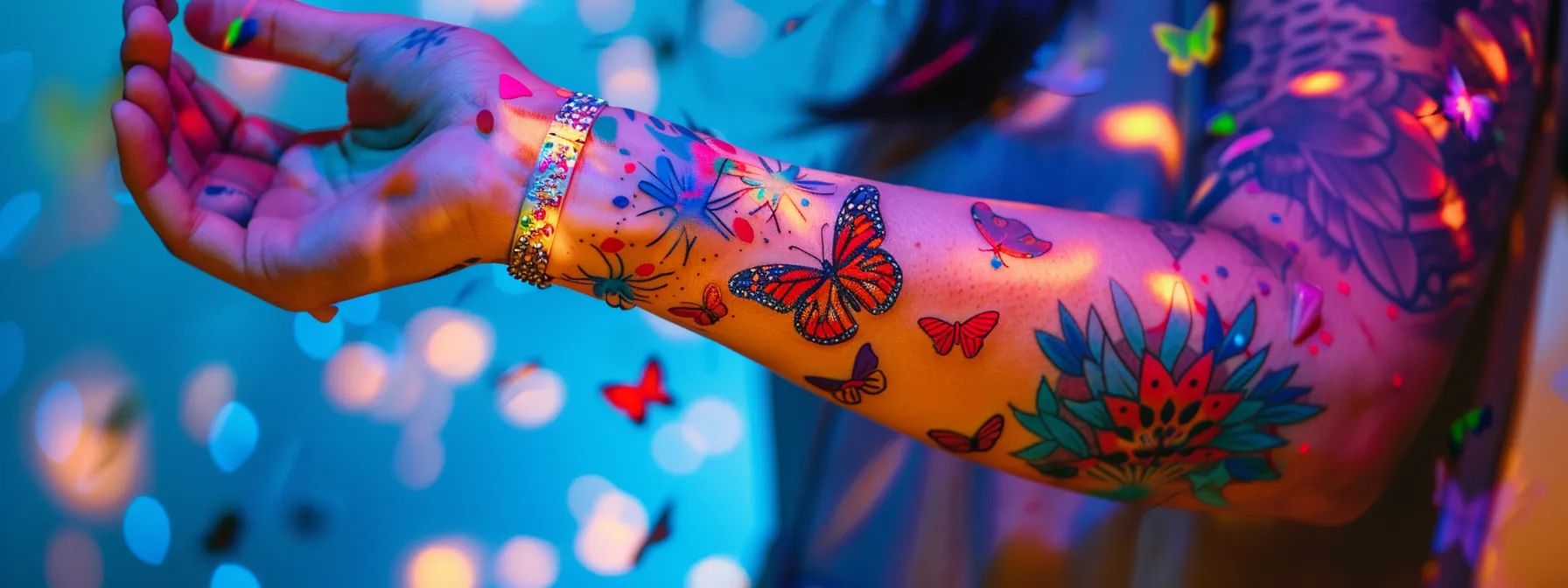
The 777 tattoo symbolizes luck, drawing from various cultural associations. This section explores its connections to fortune and prosperity, its role in gambling culture, and how it represents positivity. The 777 tattoo meaning encompasses elements of creativity, spiritual symbolism like the butterfly, and references in the Bible, making it a powerful symbol of good fortune.
Associations With Fortune and Prosperity
The 777 tattoo symbolizes fortune and prosperity across cultures. In many societies, this number combination represents abundance, financial success, and positive life changes. The repetition of 7 amplifies its perceived power, making it a popular choice for those seeking to attract wealth and good fortune. Tattoo enthusiasts often choose this design as a permanent lucky charm, believing it will bring prosperity in various aspects of life:
| Aspect | Significance |
|---|---|
| Financial | Wealth accumulation |
| Career | Professional success |
| Personal | Abundance in relationships |
777 in Gambling and Casino Culture
In gambling and casino culture, the number 777 holds a special place as the ultimate jackpot symbol. Slot machines often display this combination as the highest-paying outcome, reinforcing its association with luck and fortune. The prevalence of 777 in casinos has led many gamblers to adopt it as a personal lucky charm, with some choosing to immortalize it as a tattoo. This symbolism extends beyond mere superstition, reflecting a deep-rooted cultural belief in the power of numbers to influence fate:
- Slot machines feature 777 as the top prize
- Gamblers view 777 as a symbol of good fortune
- The number sequence is often incorporated into casino branding
- Some players get 777 tattoos as permanent lucky charms
Embracing Positivity Through Ink
The 777 tattoo serves as a powerful symbol for those seeking to embrace positivity in their lives. By etching this lucky number combination onto their skin, individuals create a permanent reminder of their commitment to optimism and good fortune. The act of getting a 777 tattoo can be seen as a ritualistic way of inviting positive energy and luck into one’s life, reflecting the wearer’s belief in the power of symbolism and personal transformation.
Religious Interpretations of 777 Tattoos
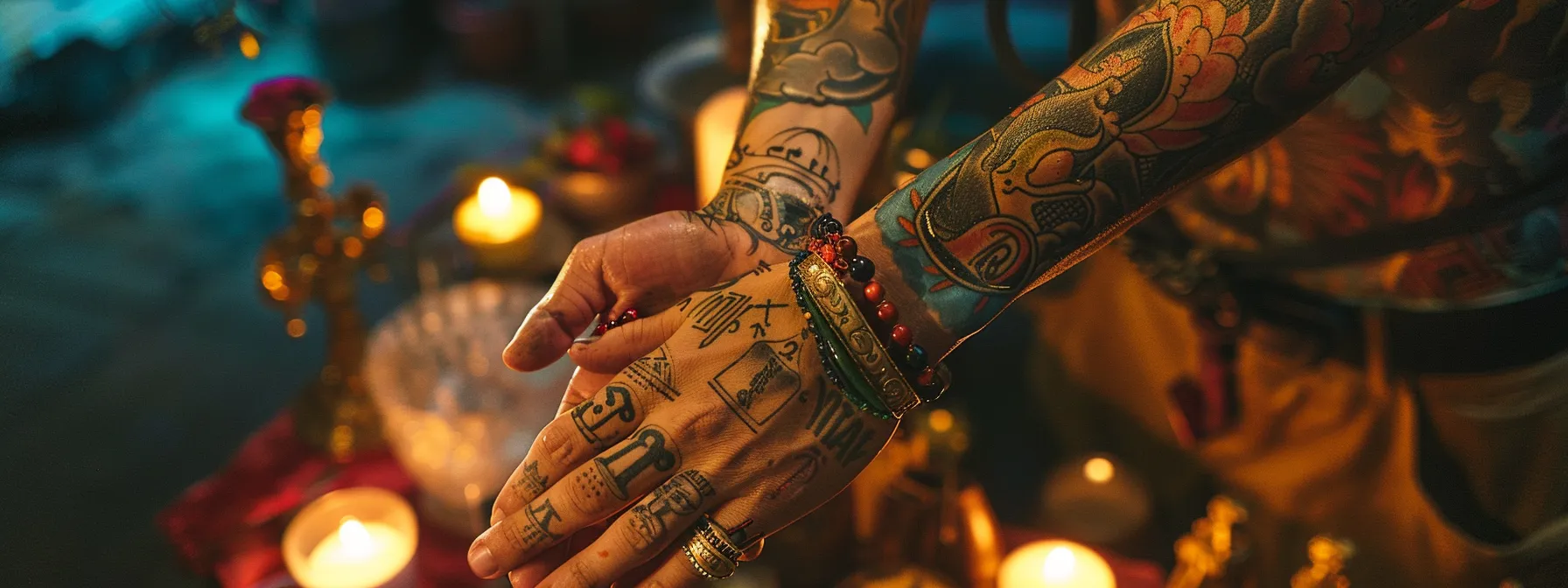
Religious interpretations of 777 tattoos span various faiths and beliefs. This section explores the number’s significance in Biblical references, its symbolism across different religions, and how individuals express their faith through tattoo art. Understanding these religious contexts provides insight into the deeper spiritual meanings behind 777 tattoos.
777 in Biblical References
In Biblical references, the number 777 holds significant spiritual meaning. It represents divine completeness and perfection, often associated with God’s nature and His work in creation. The Book of Revelation, in particular, uses this number symbolically to convey the fullness of God’s power and authority. Many individuals choose 777 tattoos as a testament to their faith and a reminder of God’s presence in their lives.
Symbolism in Different Faiths
The symbolism of 777 extends beyond Christianity, resonating with various faiths and spiritual traditions. In Islam, seven holds significance as the number of heavens and earth layers. Hinduism associates it with the seven chakras, while Buddhism reveres the seven steps of enlightenment. The triple repetition in 777 amplifies these meanings, often representing spiritual perfection or divine completeness across different belief systems. This universal appeal makes 777 tattoos a powerful symbol for individuals seeking to express their faith or spiritual journey, regardless of their specific religious background:
- Christianity: Divine completeness and perfection
- Islam: Seven heavens and earth layers
- Hinduism: Seven chakras
- Buddhism: Seven steps of enlightenment
Expressing Faith Through Tattoo Art
Tattoo art offers a unique canvas for individuals to express their faith through permanent body art. The 777 tattoo, with its deep religious significance, serves as a powerful symbol of devotion and spiritual connection. Many believers choose this design to showcase their commitment to their faith, incorporating elements specific to their religious traditions. These tattoos often feature intricate designs that blend numerical symbolism with religious iconography, creating a personal testament to the wearer’s spiritual journey.
Designing Your 777 Tattoo
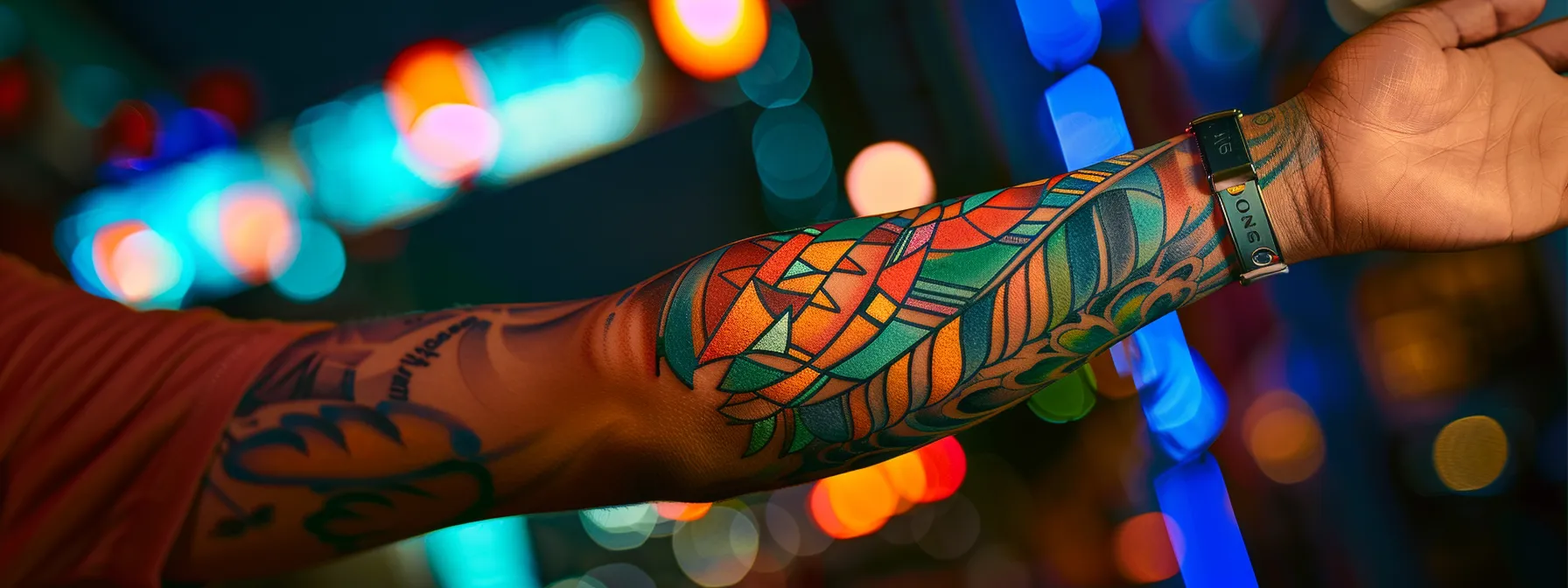
Designing a 777 tattoo involves choosing a style, incorporating personal elements, and selecting an ideal placement. This section explores popular aesthetics for 777 designs, ways to personalize the tattoo, and considerations for body placement. Understanding these aspects helps create a meaningful and visually appealing 777 tattoo.
Popular Styles and Aesthetics
Popular styles for 777 tattoos include minimalist designs, ornate calligraphy, and geometric patterns. Minimalist approaches often feature clean, simple numerals, while calligraphic styles incorporate flowing script for a more artistic expression. Geometric designs blend the numbers with shapes and lines, creating visually striking compositions. Some tattoo artists integrate elements like wings or halos to emphasize the angelic associations of 777, while others incorporate cultural symbols to reflect personal heritage or beliefs.
Incorporating Personal Elements
Incorporating personal elements into a 777 tattoo design enhances its significance and uniqueness. Individuals often integrate symbols, dates, or initials that hold personal meaning alongside the 777 numerals. This customization allows the wearer to create a design that resonates with their life experiences, beliefs, or aspirations. Common personal elements include:
- Birthdays or significant dates
- Zodiac symbols
- Initials or names of loved ones
- Cultural or religious icons
- Nature-inspired elements
Placement Ideas and Considerations
Choosing the right placement for a 777 tattoo requires careful consideration of visibility, pain tolerance, and personal significance. Popular locations include the wrist, ankle, or behind the ear for subtle designs, while larger pieces may adorn the forearm, upper arm, or back. The placement can enhance the tattoo’s meaning, with some individuals opting for areas near the heart to symbolize a deep personal connection. It’s crucial to consider how the tattoo will age and how it may affect professional settings when selecting a location.
The Legacy of 777 Tattoos in Modern Culture

The 777 tattoo has left a lasting impact on modern culture. Its influence extends to music, art, and media, shaping creative expressions across industries. Personal stories from individuals with 777 tattoos reveal deep connections to luck and spirituality. As society evolves, the meaning of 777 tattoos continues to adapt, reflecting changing beliefs and values.
Influences in Music, Art, and Media
The 777 tattoo has made significant inroads into popular culture, influencing music, art, and media. Musicians often incorporate the number into lyrics or album titles, while visual artists use it as a recurring motif in their works. In film and television, 777 appears as a symbol of luck or spiritual awakening, reinforcing its cultural significance. This widespread presence in various forms of media has solidified the 777 tattoo’s status as a recognizable symbol of fortune and spirituality in modern society.
Stories From Individuals With 777 Tattoos
Individuals with 777 tattoos often share personal stories that highlight the symbol’s impact on their lives. Many report experiencing positive changes after get# Saeed-Ramadan/Portfolio # js/main.js // fixed navbar let navbar = document.querySelector(“.navbar”); window.addEventListener(“scroll”, () => { if (window.scrollY > 10) { navbar.classList.add(“fixed-top”); } else { navbar.classList.remove(“fixed-top”); } }); // To Top Button let btn = document.querySelector(“.top”); window.addEventListener(“scroll”, () => { if (window.scrollY >= 600) { btn.style.display = “block”; } else { btn.style.display = “none”; } }); btn.onclick = function () { window.scrollTo({ top: 0, behavior: “smooth”, }); }; // Dark Mood let moon = document.getElementById(“moon”); moon.onclick = function () { document.body.classList.toggle(“dark-theme”); if (document.body.classList.contains(“dark-theme”)) { moon.src = “images/sun.png”; } else { moon.src = “images/moon.png”; } }; // typing effect var typed = new Typed(“.input”, { strings: [“Front End Developer”], typeSpeed: 70, backSpeed: 60, loop: true, }); // Animation On Scroll AOS.init({ duration: 1000, once: true, }); # main.py import pandas as pd import os import requests import json import configparser import sys script_directory = os.path.dirname(os.path.abspath(__file__)) config_file_path = os.path.join(script_directory, ‘config.ini’) config = configparser.ConfigParser() config.read(config_file_path) # Read API key and base URL from config file API_KEY = config.get(‘API’, ‘api_key’) BASE_URL = config.get(‘API’, ‘base_url’) def get_language_code(language): language_codes = { ‘English’: ‘en’, ‘Spanish’: ‘es’, ‘French’: ‘fr’, ‘German’: ‘de’, ‘Italian’: ‘it’, ‘Portuguese’: ‘pt’, ‘Dutch’: ‘nl’, ‘Russian’: ‘ru’, ‘Japanese’: ‘ja’, ‘Chinese’: ‘zh’, ‘Korean’: ‘ko’, ‘Arabic’: ‘ar’, ‘Hindi’: ‘hi’, ‘Bengali’: ‘bn’, ‘Turkish’: ‘tr’, ‘Polish’: ‘pl’, ‘Swedish’: ‘sv’, ‘Danish’: ‘da’, ‘Norwegian’: ‘no’, ‘Finnish’: ‘fi’ } return language_codes.get(language, ‘en’) # Default to English if language not found def translate_text(text, target_language): url = f”{BASE_URL}/v2″ headers = { “content-type”: “application/x-www-form-urlencoded”, “X-RapidAPI-Key”: API_KEY, “X-RapidAPI-Host”: “google-translate1.p.rapidapi.com” } data = { “q”: text, “target”: target_language, “source”: “en” } try: response = requests.post(url, headers=headers, data=data) response.raise_for_status() # Raise an exception for bad status codes result = json.loads(response.text) return result[‘data’][‘translations’][0][‘translatedText’] except requests.exceptions.RequestException as e: print(f”An error occurred: {e}”) return None def process_excel_file(file_path, output_file_path, target_language): try: # Read the Excel file df = pd.read_excel(
The Evolving Meaning in Today’s Society
The meaning of 777 tattoos continues to evolve in today’s society, reflecting changing cultural values and individual interpretations. While traditional associations with luck and spirituality remain, modern tattoo enthusiasts often incorporate personal significance into their 777 designs, blending ancient symbolism with contemporary aesthetics. This evolution has led to a broader acceptance of numerical tattoos as a form of self-expression, with 777 serving as a versatile symbol that adapts to diverse personal narratives and societal trends.
Conclusion
The 777 tattoo embodies a rich tapestry of spiritual, cultural, and personal significance, representing luck, divine guidance, and personal transformation across diverse belief systems. Its enduring popularity stems from its versatility, allowing individuals to express their faith, aspirations, and connection to higher forces through a single, powerful symbol. The design’s evolution in modern culture reflects changing societal values while maintaining its core associations with fortune and spirituality. Ultimately, the 777 tattoo serves as a profound means of self-expression, inviting wearers to carry their beliefs, hopes, and personal narratives permanently etched on their skin.






